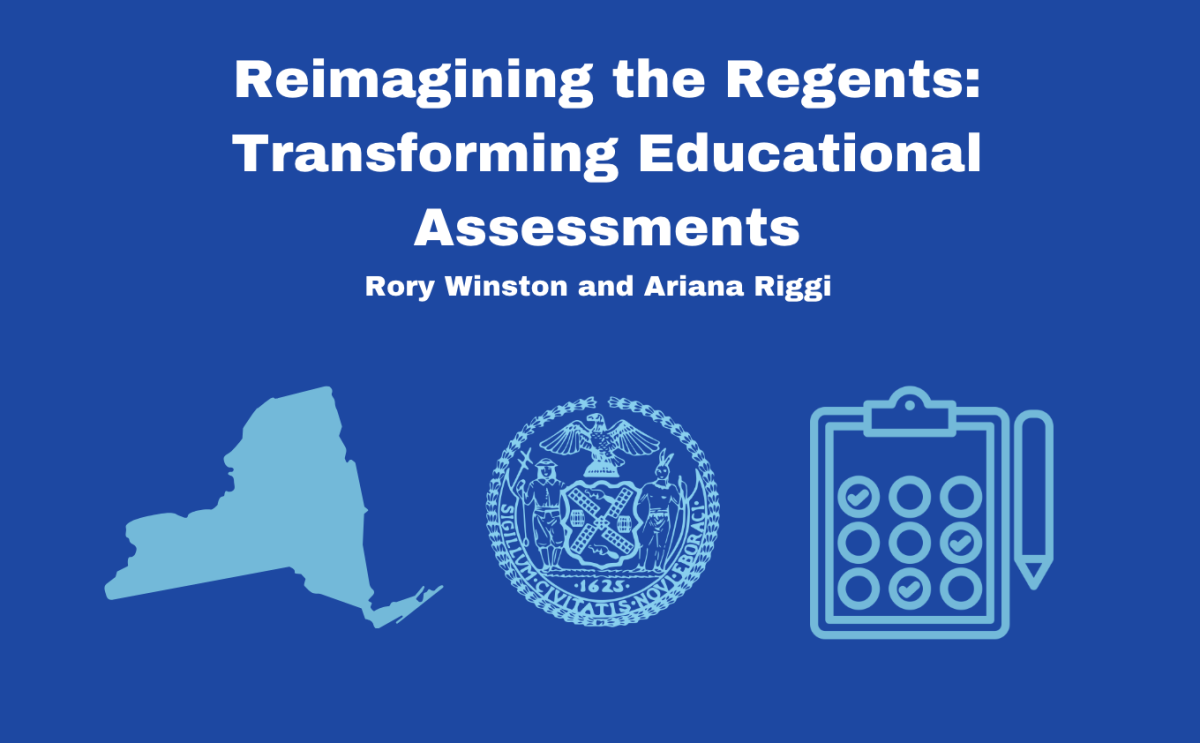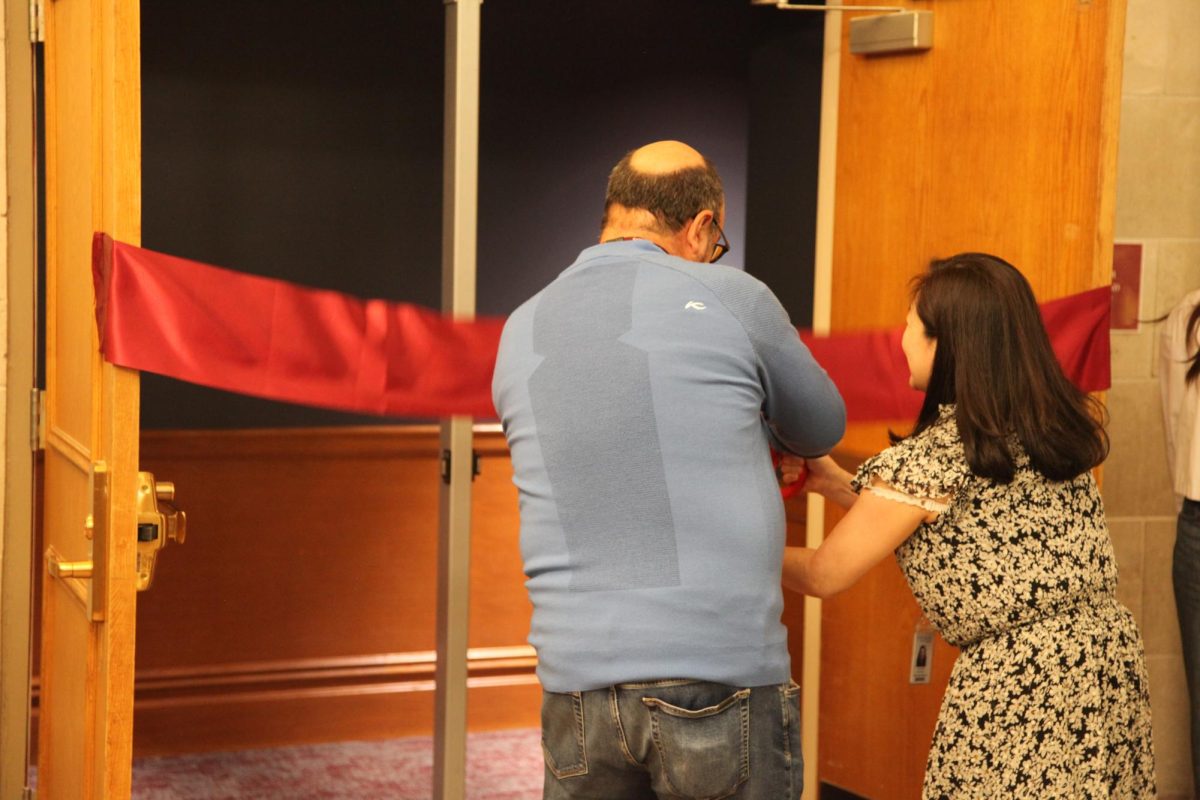Mandatory Regents exams, which have been a part of New York State educational policy since 1865, and have undergone numerous changes over the years, may soon evolve to be optional.
New York State has long advocated for using testing to raise academic standards, as demonstrated by the adoption of the Common Core a decade ago. However, in a potential about-face on this educational philosophy, on November 13th, the Blue Ribbon Advisory Committee recommended to the New York State Education Department that instead of exams, students be given the option to demonstrate mastery of material through presentations or research projects. A 64-person commission is in the process of reviewing the recommendations, and if they are adopted, changes could be in place as early as Fall 2024.
Current Regents requirements have been in place since the 1990s, whereby students must pass 5 Regents exams to graduate, including one each in English, Math, Social Studies, Science, and any additional exam. However, recent research from the Comprehensive Center Network (CC Network) has raised concerns, forcing the issue of graduation testing to the forefront of policy discussions. The CC Network’s report suggests Regents exam requirements have resulted in disproportionate high school dropout rates among underprivileged students. Proponents of abolishing graduation testing requirements are focused on ensuring that high school graduation is accessible to most students who have opportunity barriers. Critics of such changes worry that without standardized graduation requirements, it will be increasingly difficult to objectively assess if students have achieved certain educational benchmarks and that some schools may consequently offer less rigorous curricula. Other detractors argue that without needing to demonstrate proficiency in basic areas such as reading, writing, and math, a high school diploma would be devalued and many students may be severely unprepared for college and the workplace.
New York is considering changes including other credit requirements in new subject areas like financial literacy, ethics, and writing, offering optional diploma distinctions, and providing different requirements for special needs groups such as migrant students.
If New York abandons Regents, the state will join the majority of states that no longer have high school exit exams. Currently, there are only eight states that have retained similar exams, including Florida and Massachusetts. Massachusetts is also considering revamping its testing requirements. The trend toward eliminating testing is broader than just state graduation requirements.
“Regents exams are used as an accountability mechanism. That’s a good thing for schools where they struggle to employ high-quality teachers. [The exams] ensure accountability for curriculum coverage and rigor for some of the schools that don’t have the resources and strong teachers that [Scarsdale has],” SHS Assistant Principal Chris Welsh shared. However, Welsh also expressed funding concerns, stating, “For some districts, I’m sure it’s going to be difficult to start some of these programs that the state is encouraging or really in some cases, maybe requiring, without the financial support.”
Teachers who teach classes in which they must prepare the students for a Regents exam have expressed concerns about the current system in place. “There are sometimes limitations to covering the regents curriculum,” said SHS biology teacher Rika Konishi who is preparing her students for the Living Regents exam. At SHS, many teachers have chosen to expand on the core curriculum to help students develop critical thinking skills as well as the base-level material.
The proposed changes to Regents are in line with developments already underway at SHS. “We have spent quite a bit of time with our high school assessment committee exploring competency-based education. We became involved with an organization called the Mastery Transcript Consortium about 5 years ago [that advocates that] a transcript should be portfolio-based. [That approach] allows a lot more leeway in terms of the type of assessments that we can administer in terms of having students create instead of just kind of regurgitate or perform recall tasks, but really to be creative to think critically,” Welsh shared.
In recent years, there has been a notable trend in the educational landscape toward test-optional policies, particularly related to college admissions exams. Nationwide, many colleges have shifted to test-optional applications, giving students the choice of whether to submit SAT and ACT scores as part of their applications. This initiative started during the COVID-19 pandemic when it became more difficult for students to take these exams. However, post-pandemic, many colleges continued this policy, as in many cases, it has brought them a more racially diverse applicant pool. In the past, many students found themselves ‘self-rejecting’ from colleges by not submitting applications because they felt their test scores were not up to par. These students were often disadvantaged when it came to standardized testing because they did not have all the opportunities to prepare for these exams. Students who do not submit test scores appear to perform just as well in college as those who did submit test scores. Making test scores optional on college applications has been part of the equity and inclusion practices that colleges have been working towards in the past decades.
The State Education Department is currently considering which specific recommendations made by the committee to implement and how they might be implemented. It will be exciting to see what’s in store and how these modifications will impact schools and students alike, as well as how quickly they will take effect. The coming years will be pivotal as educational institutions grapple with the future of standardized testing. It’s unclear whether we will see a complete disappearance of standardized testing or whether the approach toward testing will simply be modified, considering these exams still hold merit as an effective way to measure students’ attainment of educational benchmarks.















Jacqueline F Schenk • Jun 13, 2024 at 2:10 pm
As an educator of over 26 years in the classroom focusing on the Sciences may I suggest, that students be given the opportunity to demonstrate mastery based on their multiple intelligences? Maybe, train Educators on how to differentiate their instruction and not base mastery on traditional modes of assessment.